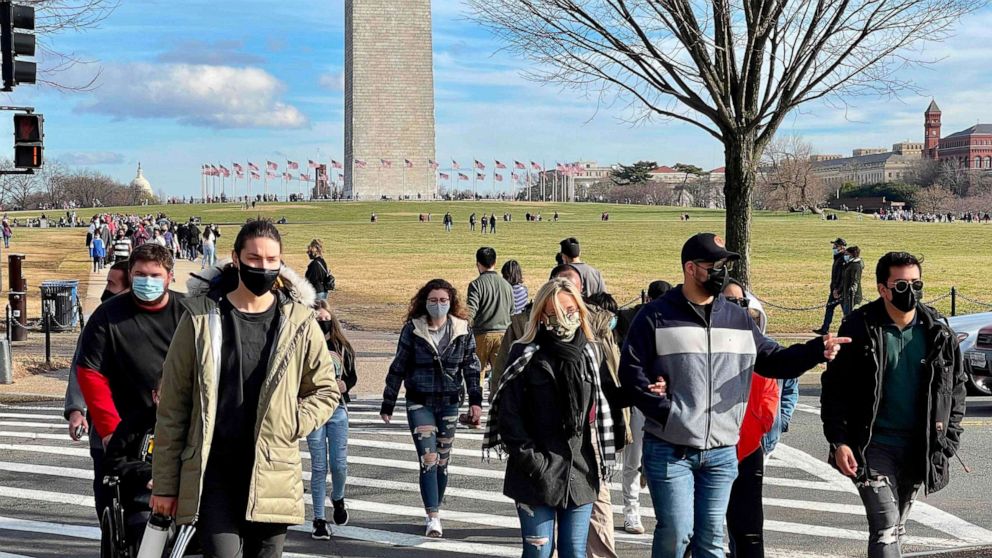
A pandemic of the novel coronavirus has now infected more than 84.6 million people worldwide and killed over 1.8 million of them, according to real-time data compiled by the Center for Systems Science and Engineering at Johns Hopkins University.

A pandemic of the novel coronavirus has now infected more than 84.6 million people worldwide and killed over 1.8 million of them, according to real-time data compiled by the Center for Systems Science and Engineering at Johns Hopkins University.
The United Kingdom will begin its rollout of the Oxford/AstraZeneca vaccine at hospitals on Monday morning, officials said.
The country's Department of Health and Social Care said 500,000 doses will be made available, "with tens of millions more to be delivered in the coming weeks and months."
"This is a pivotal moment in our fight against this awful virus, and I hope it provides renewed hope to everybody that the end of this pandemic is in sight," U.K. Health Secretary Matt Hancock said in a statement Sunday.
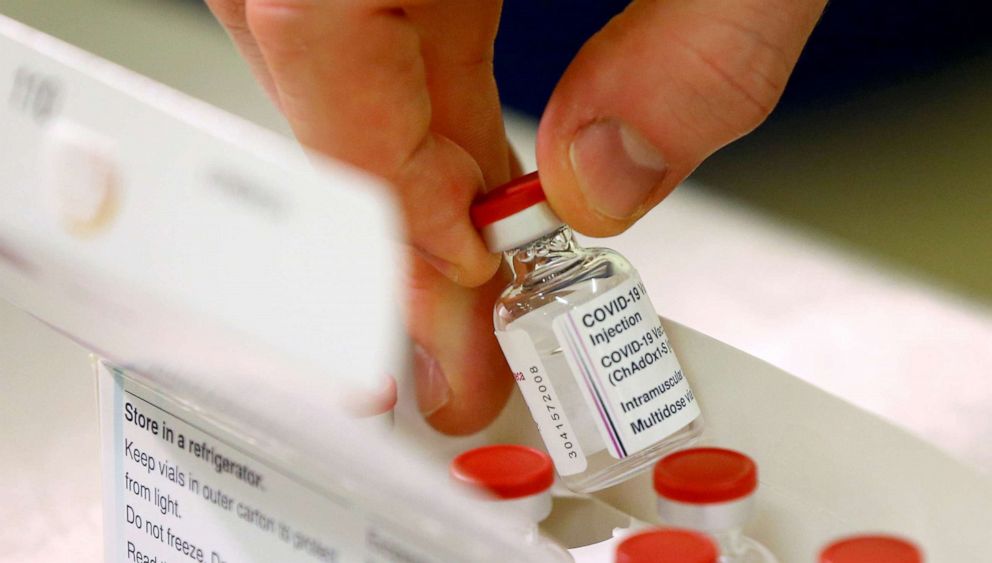
Patients will need a second shot within 12 weeks, according to officials.
The Oxford/AstraZeneca vaccine was approved for use in the U.K. last week, and the government has secured 100 million doses.
This vaccine does not need to be stored in extreme cold temperatures like the Pfizer/BioNTech and Moderna vaccines, and since it's manufactured in the U.K., transportation will be easier, according to the government.
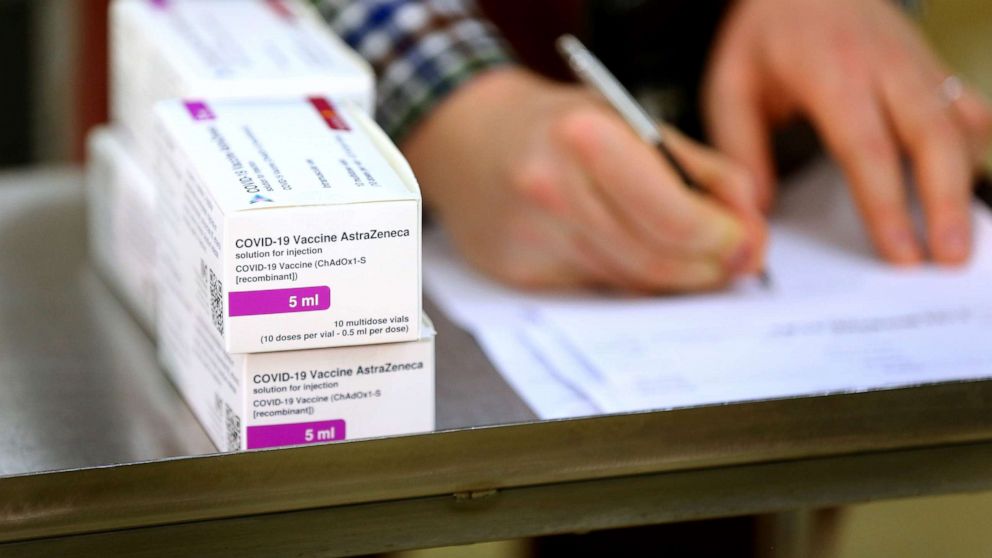
Over 1 million people in the U.K. have received the Pfizer/BioNTech vaccine since it was approved last month, according to the country's health department.
There are 730 vaccination sites in the U.K., and 280 more will be activated by the end of the week, according to health officials.
-ABC News' Zoe Magee
California health officials announced Sunday that there are over 21,510 people hospitalized with COVID-19, a new record high.
The Golden State recorded 45,352 new COVID-19 cases and 181 additional deaths from the disease on Sunday, bringing the totals to 2,391,261 million cases and 26,538 deaths, health officials said.
-ABC News' Matthew Fuhrman
U.K. health authorities on Sunday reported 54,990 newly confirmed cases of COVID-19 and 454 additional deaths from the disease, bringing the respective totals to 2,654,779 cases and 75,024 fatalities.
"What we're doing clearly is grappling with a new variant of the virus which is surging particularly in London and the southeast," British Prime Minister Boris Johnson said on the BBC's Andrew Marr Show on Sunday.
Johnson said he felt it was important to stress that the threat to kids, young people and (school) staff "is really very very very small indeed" and that parents should send their children to primary school on Monday as long as they are open. But he warned they may need to impose tougher measures in many parts of the country.
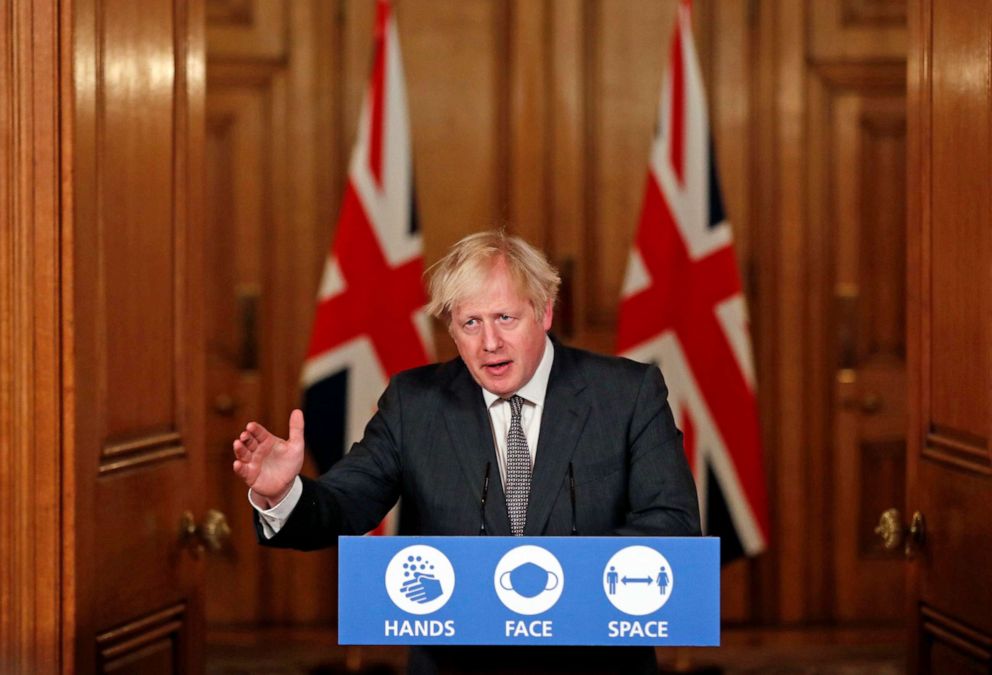
"I'm fully fully reconciled to that," he said.
On Saturday, the United Kingdom's National Education Union (NEU) said in a statement that they have made the "difficult decision" to advise members in primary schools that it is unsafe for them to be in school due to "crowded buildings with no social distancing, no PPE and inadequate ventilation," and move to remote learning.
"If Government does not act to follow the science, we must," the NEU said.
-ABC News' Christine Theodorou
The Transportation Security Administration screened 1,192,881 people at airport security checkpoints across the United States on Saturday, the agency reported.
Sunday is expected to be the biggest travel day since the start of the pandemic.
-ABC News' Sam Sweeney contributed to this report.
A staggering 299,087 new cases of COVID-19 were confirmed in the United States on Saturday, according to a real-time count kept by Johns Hopkins University.
It's the highest tally of newly diagnosed COVID-19 infections that a country has recorded in a 24-hour reporting period since the start of the pandemic.
An additional 2,398 deaths from COVID-19 were also registered nationwide on Saturday, down from a peak of 3,750 on Dec. 30, according to Johns Hopkins data.
COVID-19 data may be skewed due to possible lags in reporting over the holidays followed by a potentially very large backlog.
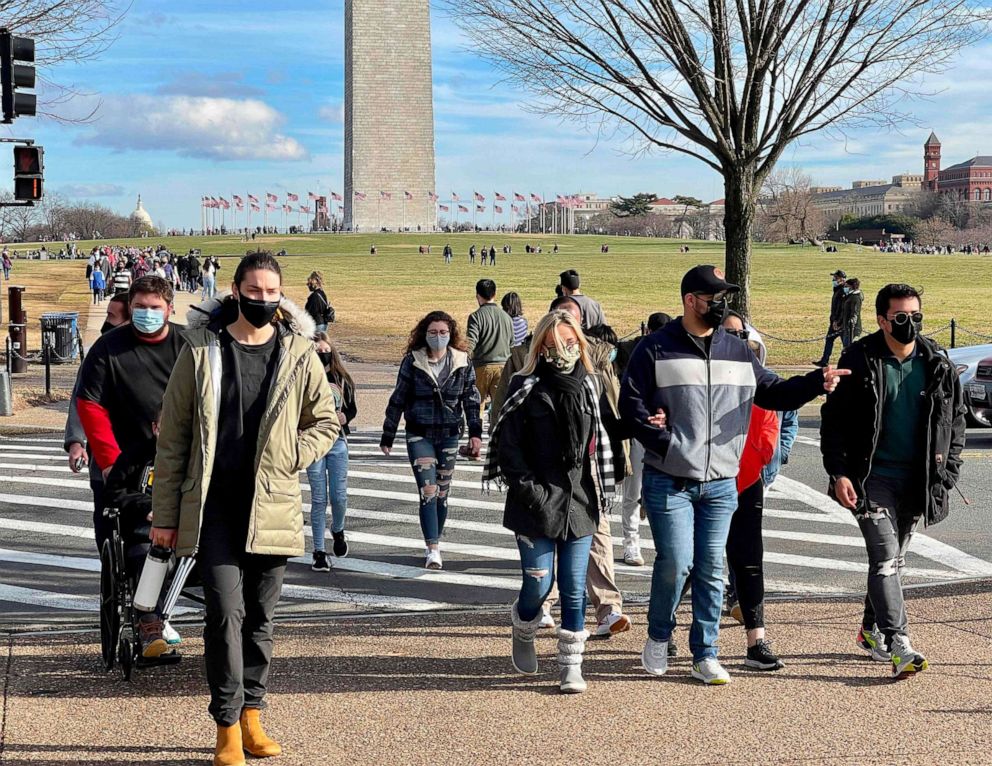
A total of 20,430,088 people in the U.S. have been diagnosed with COVID-19 since the pandemic began, and at least 350,214 of them have died, according to Johns Hopkins data. The cases include people from all 50 U.S. states, Washington, D.C., and other U.S. territories as well as repatriated citizens.
Much of the country was under lockdown by the end of March as the first wave of pandemic hit. By May 20, all U.S. states had begun lifting stay-at-home orders and other restrictions put in place to curb the spread of the novel coronavirus. The day-to-day increase in the country's cases then hovered around 20,000 for a couple of weeks before shooting back up over the summer.
The numbers lingered around 40,000 to 50,000 from mid-August through early October before surging again to record levels, crossing 100,000 for the first time on Nov. 4 and reaching 200,000 for the first time on Nov. 27.